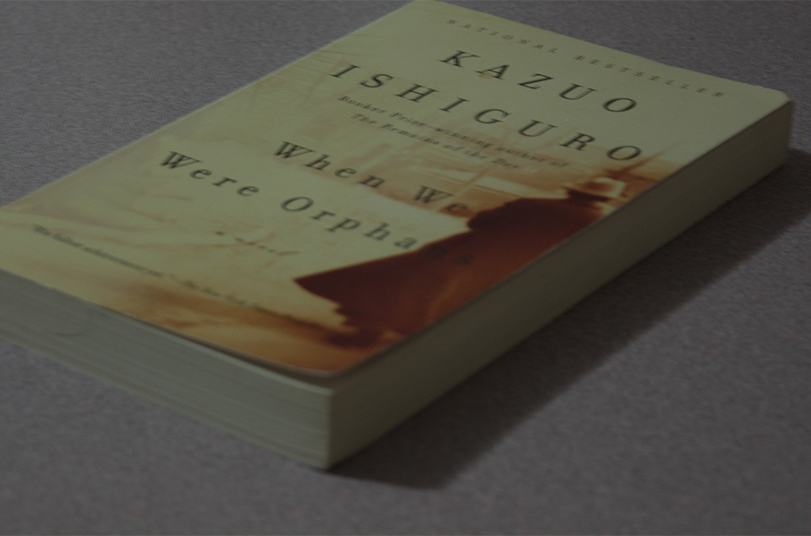 When reading Kazuo Ishiguro, I always seem to be enveloped in a haze of confusion. Especially in When We Were Orphans, because Christopher Banks is not entirely trustworthy, not because of some kind of malicious intent but because he is relying on his own memories as a guide. This is what I find so interesting about this novel. We rely so heavily on own own memories when often enough our own memories are not entirely reliable, especially when recalling them later in life. Even during recall we color our memories with further analysis of our actions. Christopher encounters at least two disconnects where other people he knew describe him in a way that he vehemently denies. This shines a light on how firmly in denial Christopher actually is. This is exacerbated after Christopher returns to Shanghai, where the novel takes a sharp turn into the unbelievable. The way the residents of Shanghai interact with Christopher and believe that he will rescue his parents and solve all their problems is quite surreal.
When reading Kazuo Ishiguro, I always seem to be enveloped in a haze of confusion. Especially in When We Were Orphans, because Christopher Banks is not entirely trustworthy, not because of some kind of malicious intent but because he is relying on his own memories as a guide. This is what I find so interesting about this novel. We rely so heavily on own own memories when often enough our own memories are not entirely reliable, especially when recalling them later in life. Even during recall we color our memories with further analysis of our actions. Christopher encounters at least two disconnects where other people he knew describe him in a way that he vehemently denies. This shines a light on how firmly in denial Christopher actually is. This is exacerbated after Christopher returns to Shanghai, where the novel takes a sharp turn into the unbelievable. The way the residents of Shanghai interact with Christopher and believe that he will rescue his parents and solve all their problems is quite surreal.
It’s funny that Christopher’s profession as a detective gets glazed over as we hear passing remarks about his success with his cases, with no direct focus being given to his work at all. The driving mystery lies within Christopher’s memories and the disappearance of his parents. This mystery, rather than being solved with the accumulation of clues and deductive reasoning, seems to be solved with a hodgepodge of happenstance and strange coincidences. Honestly, the final leg of the book seems to teeter between reality and dreamlike wish fulfillment. Christopher clings hopelessly to his views on defeating the problem of evil and later the rescue of his parents, which are fairly naive.
After all, when we were children, when things went wrong, there wasn’t much we could do to help put it right. But now we’re adults, now we can. That’s the thing, you see? Look at us, Akira. After all this time, we can finally put things right. Remember, old chap, how we used to play those games? Over and over? How we used to pretend we were detectives searching for my father? Now we’re grown, we can at last put things right.
His choice of profession is presented as childish, an extension of his games with Akira, the loss of his parents stunted his development into an adult.
Perhaps there are those who are able to go about their lives unfettered by such concerns. But for those like us, our fate is to face the world as orphans, chasing through long years the shadows of vanished parents. There is nothing for it but to try and see through our missions to the end, as best we can, for until we do so, we will be permitted no calm.
It’s hard not to see Christopher as a wasted life but I feel a sense of hopefulness at the conclusion of the book and that he, like Sarah, tore free of and forged some sort of life for himself, something more than a person just passing through.
All I know is that I’ve wasted all these years looking for something, a sort of trophy I’d get only if I really, really did enough to deserve it. But I don’t want it anymore, I want something else now, something warm and sheltering, something I can turn to, regardless of what I do, regardless of who I become. Something that will just be there, always, like tomorrow’s sky. That’s what I want now, and I think it’s what you should want too. But it will be too late soon. We’ll become too set to change. If we don’t take our chance now, another may never come for either of us.
A lot of the issues that were brought up in this novel seem to intersect with Colorless Tsukuru Tazaki and His Years of Pilgrimage, a book I just finished tonight, which I’ll talk about next time.
